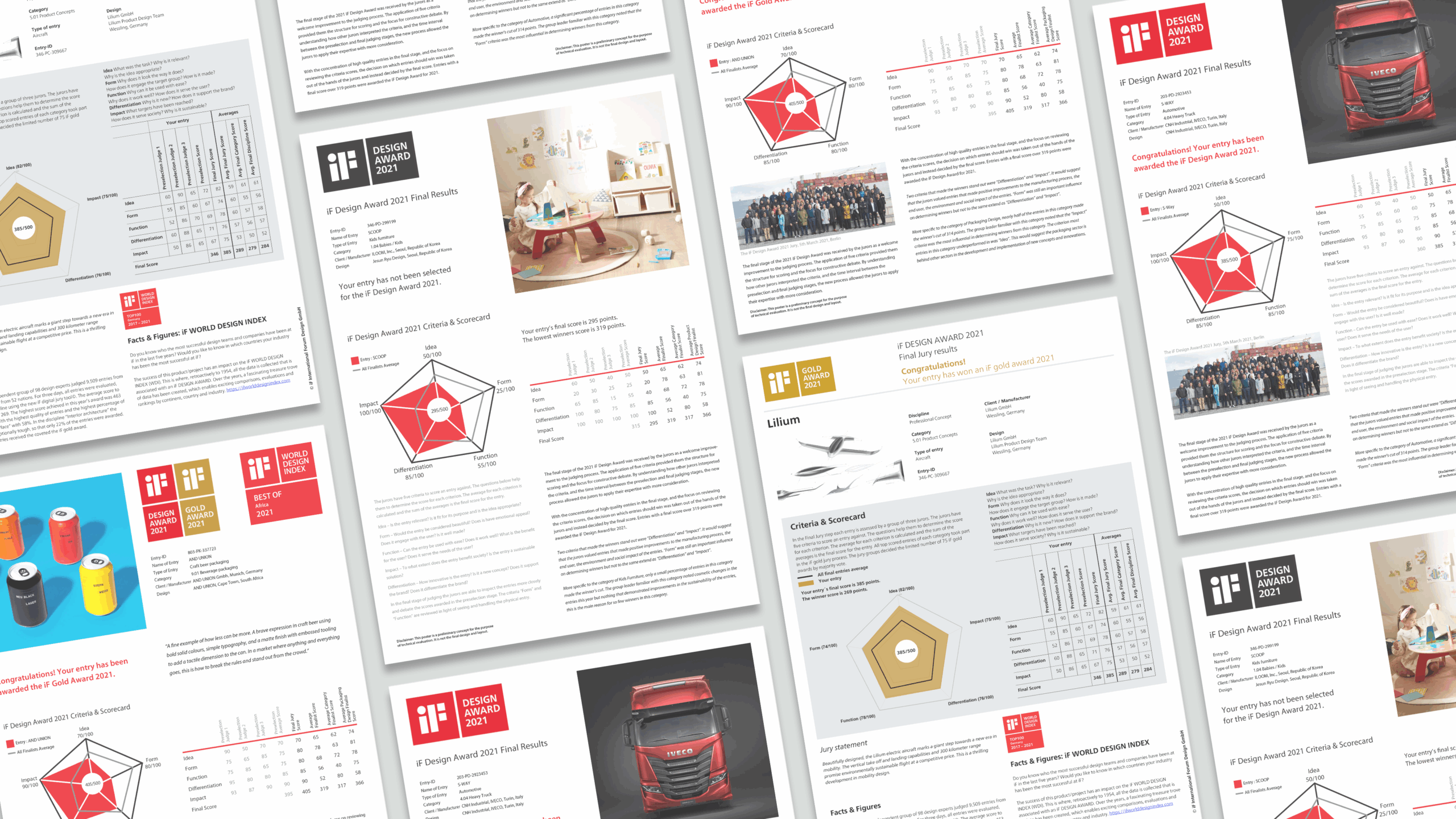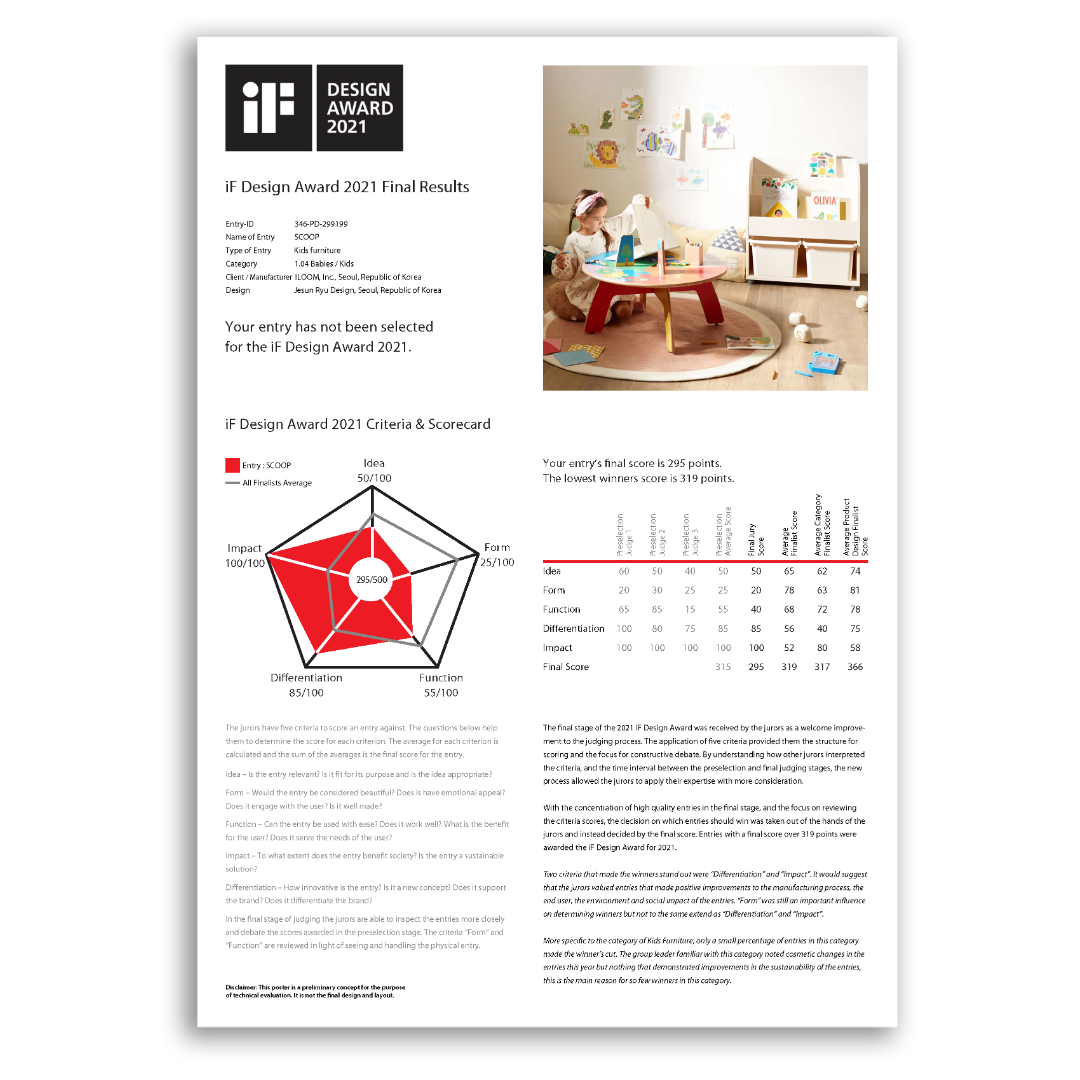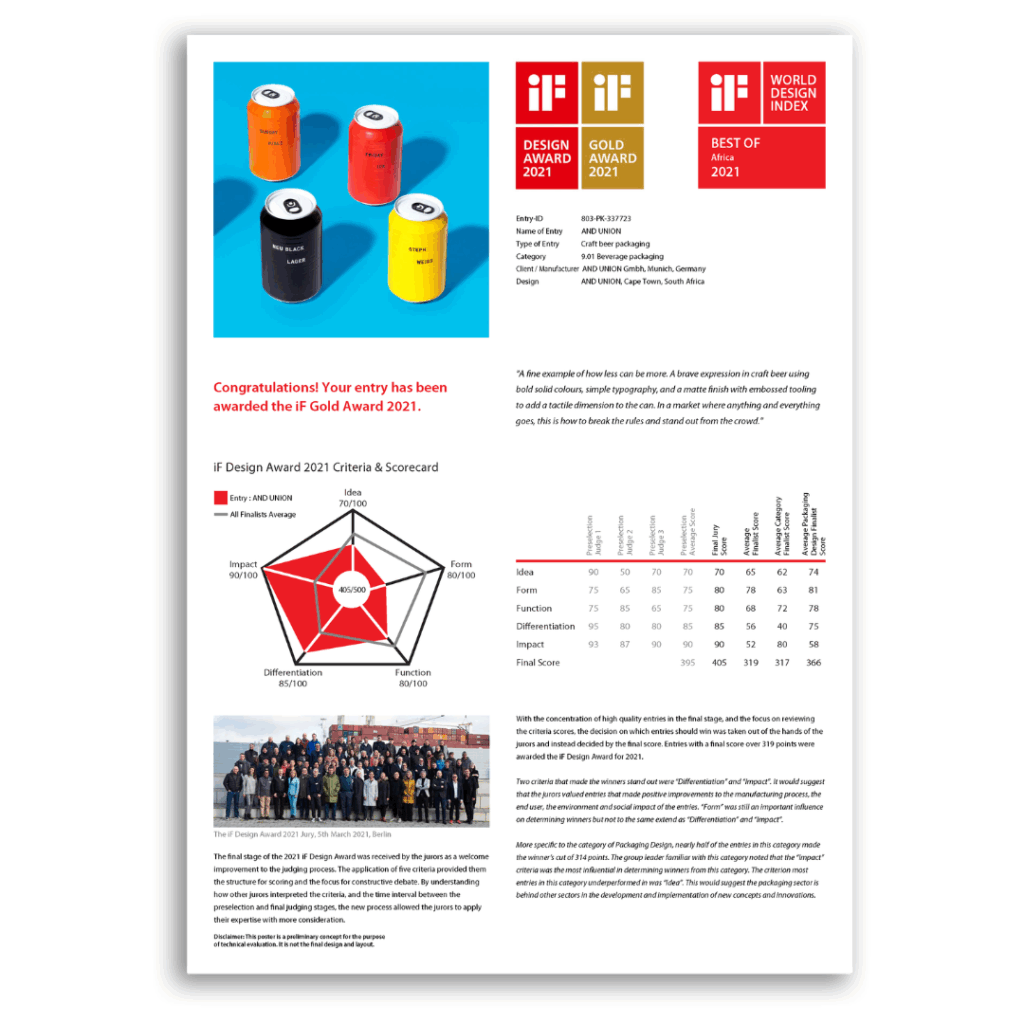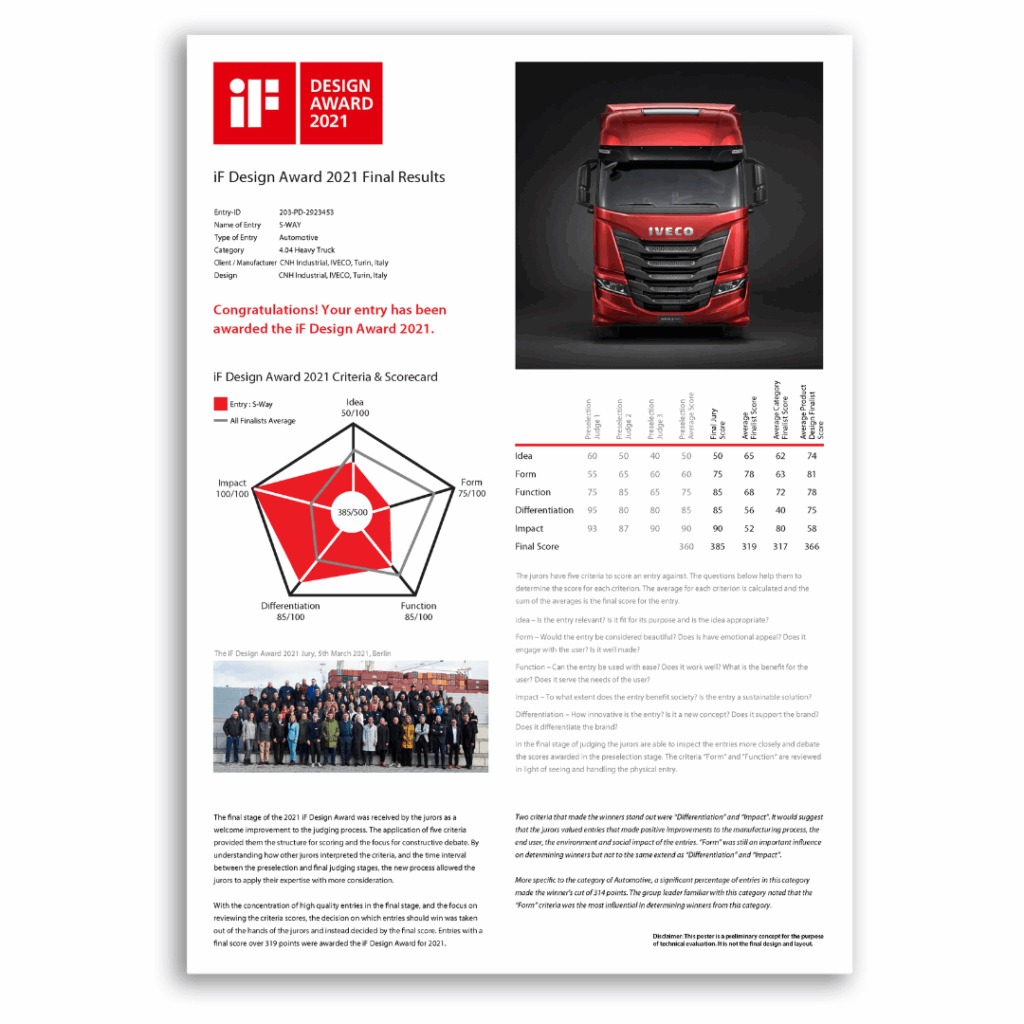Project developed for the iF Design Award (Germany)

Senior management at the iF Design Award headquarters in Germany envisioned using data to enhance their judging process and to provide meaningful feedback to award entrants. However they couldn’t see how it would work.
With our expertise in developing metrics for design performance, iF invited DUCO to observe their judging process and identify opportunities for generating data. We participated in the judging sessions and analysed legacy data available on their website. While this initial research revealed some interesting insights, it became evident that the existing data would not assist judges nor provide any specific feedback of value to the entrants.
Building on our experience in organizing design management awards, we developed a structured approach to evaluating submissions using a defined set of criteria. Under this framework, judges scored each entry against every criterion. While the iF management finalized a five-point evaluation system, DUCO focused on how this approach could better support all participants — particularly those who did not receive an award but sought constructive feedback. DUCO explored how aggregated scoring data could be transformed into meaningful metrics, offering valuable insights to help participants understand and improve their future submissions.
DUCO suggested the criteria results of each entry should be sent in a poster format whereby the entry, its scores and relevant information can be reviewed and possibly hung for posterity. The addition of category and design discipline benchmarks for each of the five criteria allows entrants so see where their entry was strong and weak. This level of transparency would distinguish the iF Design Award from other design competitions and reinforce their commitment to advancing design practices globally.
In the past, the binary outcome of the judging process (win or no win) led to a high volume of follow-up inquiries from entrants seeking clarification. While iF values the opportunity to engage with the award participants, providing personalized feedback at scale is not feasible for an award that receives thousands of entries each year. This project emerged from an extensive exploration of metrics and data sources, with the goal of offering a more meaningful service to entrants and ultimately strengthening the iF Award process.



Technical details
Project planning, research and management: Gisele Raulik, Darragh Murphy
